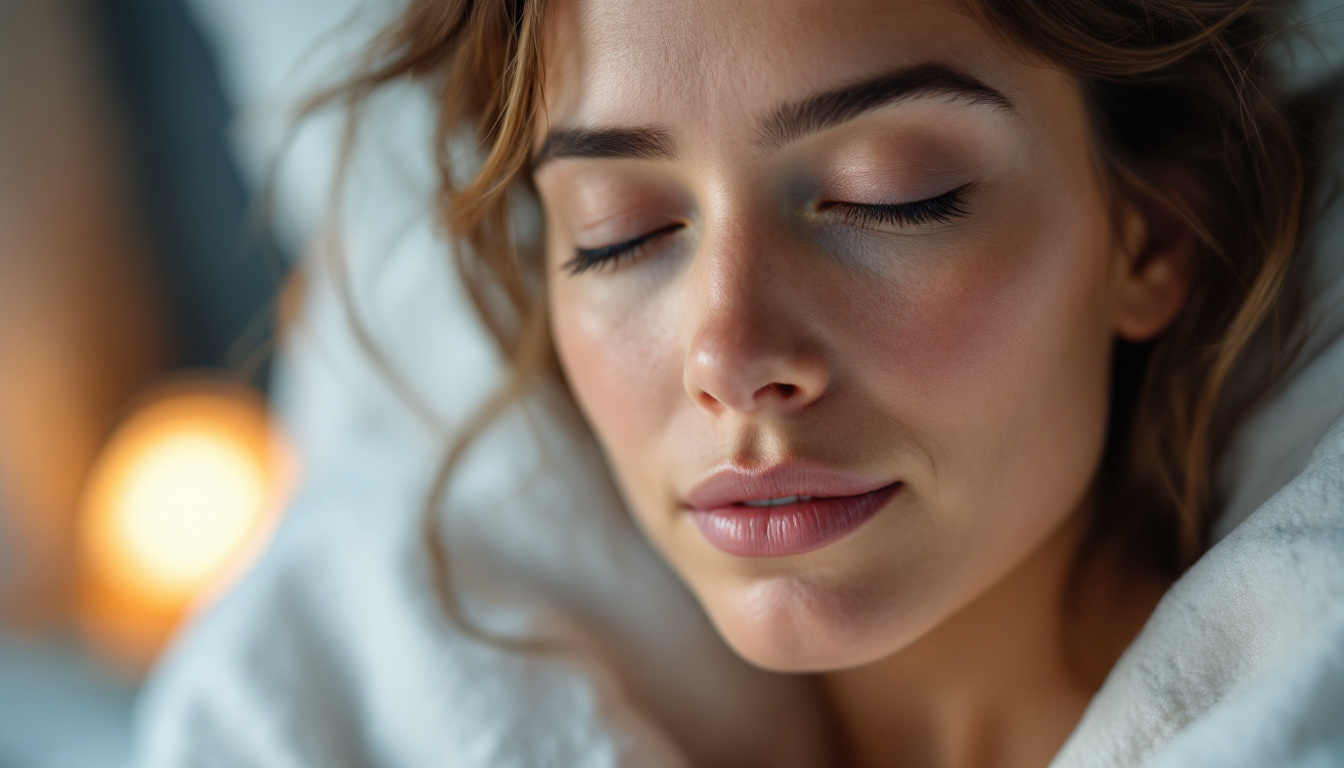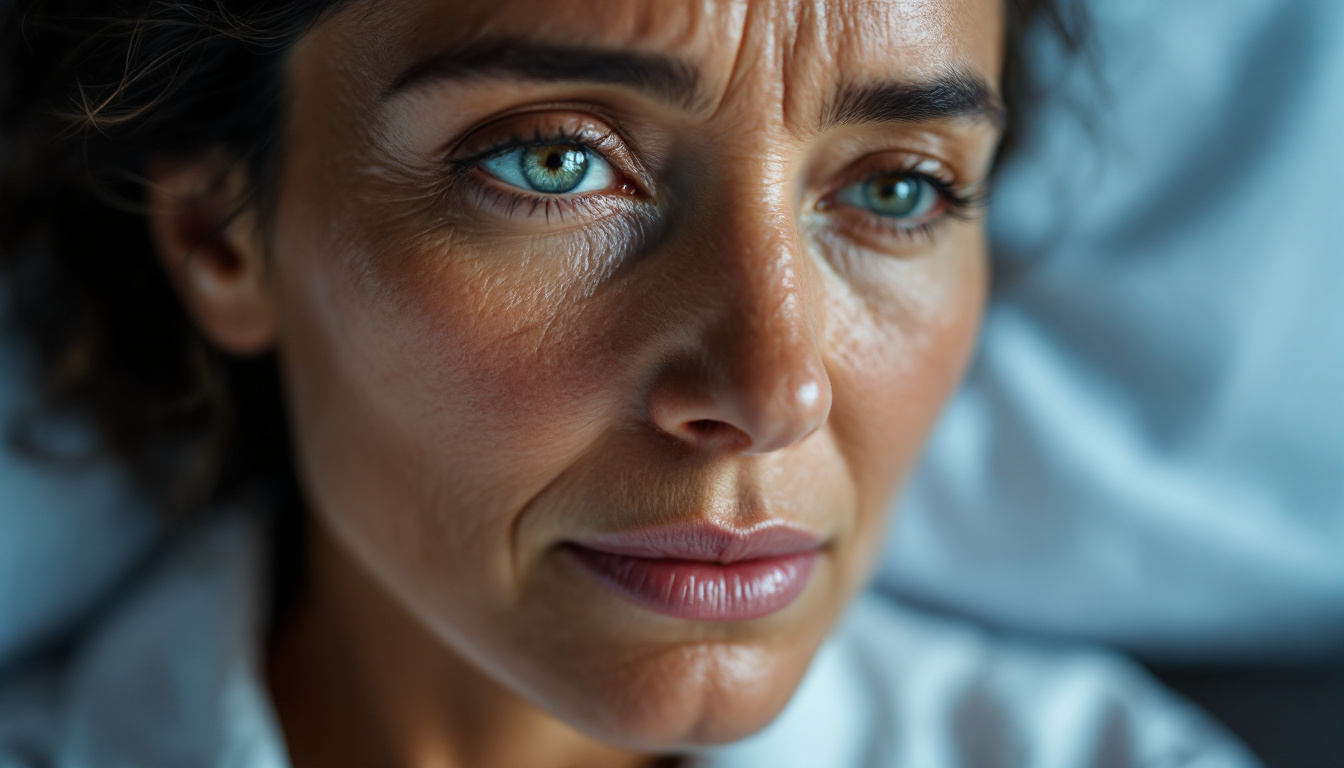Why Poor Sleep Will Give You Wrinkles: The Science Behind Aging Skin
The quality of our sleep can significantly impact nearly every aspect of our health, including the appearance of our skin. As the body's largest organ, the skin serves as a reflection of our overall well-being. When we neglect proper sleep, the consequences are not merely fatigue and mood swings; over time, it can manifest as premature aging and wrinkles. In this article, we delve into the science behind the connection between poor sleep and aging skin.
Understanding the Connection Between Sleep and Skin Health
Sleep is essential for numerous physiological processes, including the repair and regeneration of skin cells. While we sleep, the body repairs itself, replenishes its energy supply, and promotes healthy skin turnover. This connection is particularly evident in the way our bodies react to lack of sleep.

The skin undergoes various regenerative processes during deep sleep, such as collagen production and the elimination of toxins. A poor sleeping pattern disrupts these processes, leading to visible signs of aging, including wrinkles, fine lines, and dullness.
The Role of Sleep in Skin Regeneration
During the stages of deep sleep, growth hormone levels surge significantly, aiding in the repair and growth of tissues and skin cells. This natural process is crucial for maintaining an even skin tone, firmness, and hydration. When you sleep well, your skin has the opportunity to rejuvenate and recover from the day’s exposure to environmental stressors.
Moreover, the body’s ability to form new skin cells peaks during the sleep cycle, ensuring a vibrant and youthful appearance. A consistent lack of sleep, therefore, hinders this regenerative process, leading to accelerated skin aging. The importance of sleep extends beyond mere aesthetics; it plays a vital role in the overall health of your skin, influencing its resilience against various conditions and its ability to heal from damage.
How Lack of Sleep Affects Your Skin
Inadequate sleep disrupts the natural circadian rhythm, leading to increased levels of cortisol, the stress hormone. Elevated cortisol levels can impair skin barrier function, making it more susceptible to damage from external factors like pollution and UV rays.
This compromised barrier additionally exacerbates issues like dryness, irritation, and inflammation, which can elevate the likelihood of skin conditions like eczema and acne. Furthermore, sleep deprivation can lead to a dull complexion, as the skin loses its natural glow without adequate rest and repair time. Chronic sleep deprivation can also lead to dark circles and puffiness around the eyes, as the body struggles to eliminate excess fluid and toxins effectively. These changes can create a cycle of stress and anxiety about appearance, further impacting sleep quality and skin health.
Interestingly, the relationship between sleep and skin health is not just a one-way street. The skin itself can influence sleep patterns; for instance, conditions like acne or eczema can cause discomfort, leading to restless nights. This highlights the importance of a holistic approach to skincare that includes not only topical treatments but also lifestyle changes that promote better sleep hygiene. Simple practices such as maintaining a consistent sleep schedule, creating a calming bedtime routine, and minimizing screen time before bed can significantly enhance both sleep quality and skin vitality.
The Science of Aging Skin
As we age, our skin undergoes various changes that contribute to its appearance. Understanding these changes can shed light on how factors such as sleep influence skin health over time.
The Biological Process of Skin Aging
Skin aging is attributed to a combination of intrinsic and extrinsic factors. Intrinsic aging is the natural aging process dictated by genetics, while extrinsic aging is influenced by environmental factors such as sun exposure and lifestyle choices. When these processes occur simultaneously, the skin can lose its youthful elasticity and firmness.
Additionally, the production of vital components such as collagen and elastin decreases with age, making skin more prone to wrinkles and sagging. Understanding these processes emphasizes the importance of maintaining optimal sleep patterns to help slow down this aging process. During sleep, the body enters a state of repair, where cell regeneration occurs, and the skin can recover from daily stressors. This restorative phase is crucial for maintaining a vibrant and healthy complexion.
Factors Accelerating Skin Aging
Several external factors can exacerbate skin aging, including poor nutrition, smoking, and insufficient hydration. Furthermore, chronic stress and lack of sleep can compound these effects, leading to accelerated deterioration of skin health.
Pollution and sun exposure are also significant contributors to premature aging, as they damage skin cells and promote oxidative stress. When combined with sleep deprivation, the body has a reduced ability to combat these harmful effects, leading to visible aging signs. Moreover, the skin's barrier function weakens over time, making it more susceptible to irritants and allergens. This compromised barrier can result in increased dryness and sensitivity, further highlighting the need for a comprehensive skincare routine that includes protective measures against environmental aggressors.
In addition to these factors, hormonal changes, particularly during menopause, can also play a critical role in skin aging. Fluctuations in hormones such as estrogen can lead to decreased moisture retention and increased skin fragility. This hormonal shift often results in a noticeable change in skin texture and tone, making it essential for individuals experiencing these changes to adapt their skincare regimens accordingly. Incorporating products rich in hyaluronic acid and antioxidants can help mitigate some of these effects, providing the skin with the hydration and protection it needs during this transitional phase.
The Link Between Poor Sleep and Wrinkles
The relationship between sleep and the visible aging of skin is increasingly clear. Significant evidence suggests that poor sleep negatively impacts collagen production, an essential protein responsible for skin elasticity.
Sleep Deprivation and Collagen Production
Collagen is crucial for maintaining skin structure and fullness. Studies have shown that lack of sleep may lead to decreased collagen synthesis, resulting in increased sagging and wrinkle formation. When the body does not have enough time to recover during sleep, it also does not have adequate resources to produce collagen effectively.
This reduction in collagen not only contributes to the development of wrinkles but also affects the skin's overall resilience, making it more difficult for skin to recover from daily wear and tear.
How Sleep Quality Influences Wrinkle Formation
The quality of sleep also plays a vital role in skin health. Poor sleep quality, characterized by frequent awakenings or insufficient deep sleep cycles, can exacerbate the development of fine lines and wrinkles. The cumulative effect of restless nights manifests externally, as lack of restorative sleep prevents the skin from executing its repair mechanisms effectively.
Moreover, when individuals experience poor sleep, they may resort to unhealthy lifestyle choices, such as high caffeine consumption or neglecting skincare routines, which can further diminish skin health and contribute to premature aging.
The Impact of Sleep Disorders on Skin Aging
Sleep disorders, such as sleep apnea and insomnia, can also have profound effects on skin aging. These disorders not only disrupt normal sleep patterns but also have physiological effects that can lead to visible skin damage.

Sleep Apnea and Skin Health
Obstructive sleep apnea is characterized by repeated episodes of airway obstruction during sleep. This condition not only reduces oxygen flow but can also lead to systemic inflammation, resulting in a range of skin issues, including discoloration and increased wrinkle formation.
Studies have shown that individuals with sleep apnea often display more pronounced signs of aging, such as dark circles or sagging skin. Treating sleep apnea can mitigate these issues, emphasizing the need for addressing sleep-related disorders for improved skin health.
Insomnia and Its Effects on Skin Aging
Chronic insomnia can lead to persistent fatigue and stress, both of which can negatively impact skin quality. The hormonal imbalance caused by lack of sleep can trigger increased oil production, leading to breakouts and acne.
Moreover, people suffering from insomnia often experience heightened levels of stress, which can exacerbate skin problems and accelerate the aging process. It is essential to prioritize sleep management as part of a comprehensive approach to skin health.
Improving Sleep for Better Skin Health
Fortunately, there are actionable steps individuals can take to improve sleep quality and, by extension, support their skin health. Establishing good sleep hygiene practices is a vital aspect of this approach.
Sleep Hygiene Tips for Healthier Skin
- Establish a regular sleep schedule, going to bed and waking up at the same time daily.
- Create a relaxing bedtime routine to signal to your body that it's time to wind down.
- Limit screen time before bed to reduce blue light exposure, which can interfere with melatonin production.
- Ensure your sleep environment is conducive to rest—dark, quiet, and cool.
- Consider using comfortable bedding and pillows to enhance your sleep quality.
By following these tips, individuals can foster a healthier sleep environment that promotes better rest and rejuvenation for their skin.
The Role of Diet and Exercise in Sleep Quality and Skin Health
Beyond sleep hygiene, diet and exercise significantly influence both sleep quality and skin health. A well-balanced diet rich in antioxidants can help combat oxidative stress, promoting healthier skin while also supporting better sleep.
Additionally, regular physical activity has been shown to improve sleep patterns and overall well-being. Exercise aids in stress management and can enhance the body's capacity to achieve restorative sleep, setting the stage for skin rejuvenation.
By integrating good dietary habits and physical activity into daily routines, individuals can effectively improve both their sleep and skin health, potentially reducing the risk of premature aging.
In conclusion, prioritizing sleep is crucial for maintaining healthy skin and minimizing signs of aging. Understanding the science behind sleep, skin regeneration, and the factors that influence skin aging can empower individuals to make informed choices that promote optimal sleep health and, consequently, radiant skin.




